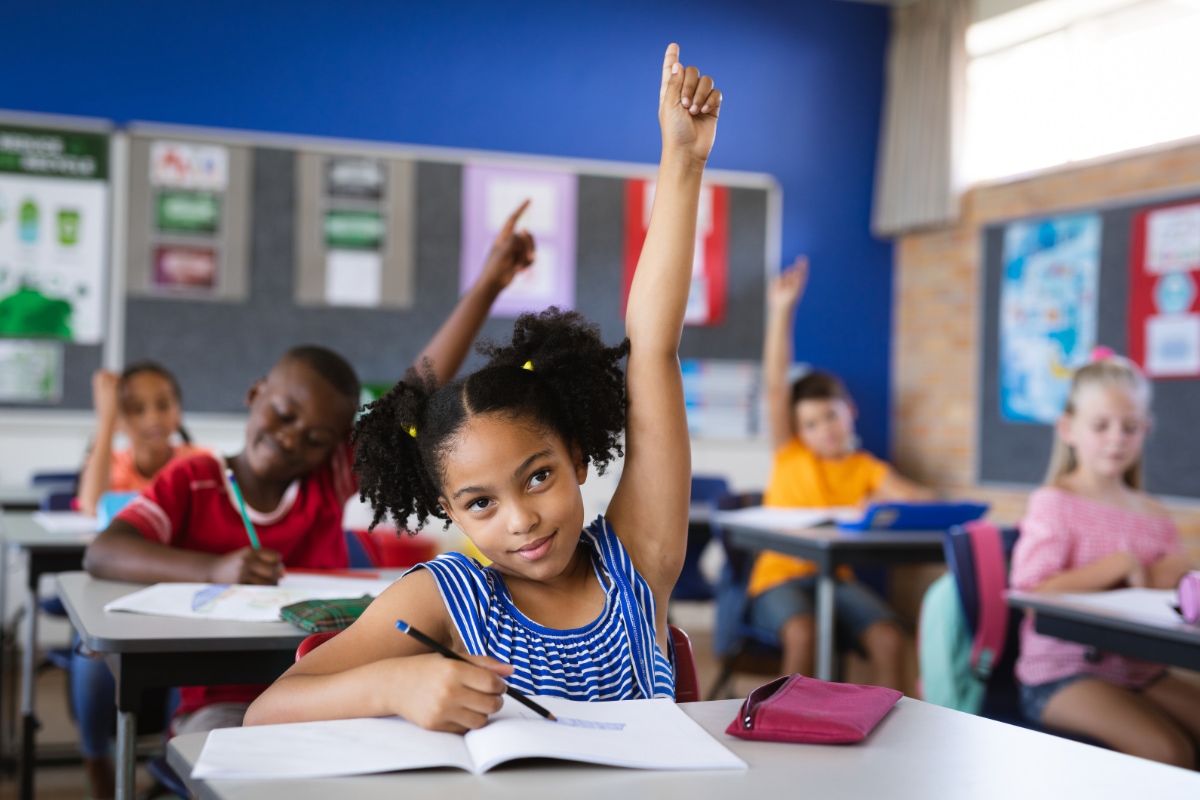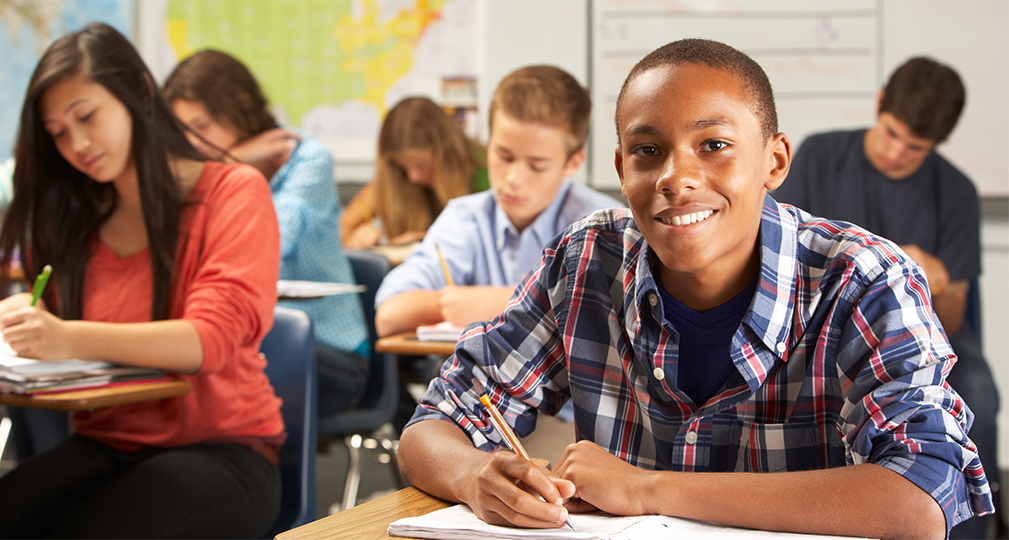Cutting-edge Solutions to Save Temecula Schools from Budget Cuts
Cutting-edge Solutions to Save Temecula Schools from Budget Cuts
Blog Article
Recognizing the Relevance of Colleges in Kid Development and Community Development
Schools function as crucial institutions for child development and neighborhood growth, offering settings where scholastic accomplishments are complemented by the growing of social abilities and direct exposure to diverse viewpoints. These academic setups not just promote critical thinking and effective interaction yet likewise foster compassion with collaborative tasks. Furthermore, schools' involvement with regional communities through service-learning efforts enhances the bond between households and instructional establishments. This cooperative connection emphasizes the significance of schools in supporting active citizenship and lifelong learning practices. What are the specific systems by which these organizations attain such extensive impacts?
Academic Success
Academic accomplishment works as a keystone of child development, offering the structure whereupon future understanding and success are built. Schools play an essential role in cultivating this scholastic growth, offering organized environments where kids can obtain crucial expertise and cognitive skills. Standard curricula guarantee that pupils gain efficiency in core subjects such as maths, scientific research, and language arts, which are important for both higher education and specialist chances.
Along with giving fundamental scholastic abilities, institutions likewise cultivate crucial thinking, analytical abilities, and intellectual inquisitiveness. These cognitive proficiencies are essential for browsing complex real-world scenarios and adapting to the ever-evolving demands of the modern workplace. Teachers, as facilitators of learning, utilize varied instructional approaches to accommodate different discovering designs, thus maximizing individual student capacity.
Moreover, academic success is carefully connected to self-worth and motivation. Youngsters who experience academic achievements are most likely to establish a favorable self-concept and a long-lasting passion for discovering. Schools additionally provide different sources, such as collections and modern technology, which additionally improve the instructional experience and prepare trainees for a technically innovative society.
Social Ability Development
Beyond academic accomplishment, the role of colleges in social skill advancement is important. Schools function as a main place for kids to find out and exercise crucial social abilities such as cooperation, communication, and conflict resolution. In the organized atmosphere of a class, trainees communicate with peers, instructors, and other school staff, supplying various possibilities to establish these essential capacities.
Efficient social skill advancement in institutions is facilitated through team activities, collaborative tasks, and extracurricular programs. These interactions aid trainees recognize social standards, construct empathy, and promote a feeling of area. Team tasks teach trainees how to work together in the direction of a typical objective, pay attention to various perspectives, and browse differences constructively.

The cultivation of social abilities during school years lays a structure for future personal and professional relationships. Save Temecula Schools. As trainees grow, the capacity to properly communicate and collaborate comes to be significantly vital, highlighting the school's crucial role in alternative child growth
Exposure to Variety
Exposure to diversity in colleges is fundamental to promoting a comprehensive state of mind and broadening students' perspectives. Schools offer as a microcosm of the wider culture, and running into diverse cultures, languages, and socioeconomic histories within this atmosphere equips trainees with essential abilities for navigating a significantly globalized globe. This exposure motivates empathy, minimizes prejudices, and promotes shared regard among peers.
Research suggests that students that interact with peers from different histories show far better analytical abilities and creative thinking. This understanding of diversity prepares students for future work environments that value modern competence - Save Temecula Schools.

Area Engagement
The benefits of varied classrooms extend beyond the college walls, fostering a solid feeling of neighborhood interaction amongst students. By communicating with peers from various cultural, socioeconomic, and ethnic backgrounds, pupils obtain a more comprehensive viewpoint and an appreciation for diversity. This direct exposure motivates them to come to be active people that want to add favorably website here to their neighborhoods.
Institutions that emphasize community interaction usually include service-learning jobs, which enable trainees to attend to real-world troubles while applying academic skills. These jobs not just boost pupils' understanding of their coursework however additionally infuse a feeling of duty and empathy. Collaborations in between colleges and regional organizations offer pupils with possibilities to get involved in neighborhood events, better solidifying their duty as positive community participants - Save Temecula Schools.
Furthermore, adult and area participation in institutions enhances the bond in between schools and the neighborhoods they offer. They develop a collective atmosphere that profits all stakeholders when schools open their doors to community events, workshops, and volunteer possibilities. This common support group makes sure that trainees get all natural development, preparing them to come to be all-round individuals that add and value to their neighborhoods. With these efforts, institutions play an essential function in supporting neighborhood involvement and cultivating societal growth.
Lifelong Knowing Routines
Creating lifelong knowing behaviors is vital for a kid's constant development and adaptability in an ever-changing world. Colleges play a pivotal role in instilling these routines by creating an atmosphere that fosters inquisitiveness, crucial reasoning, and a love for expertise. Through extracurricular activities and diverse educational programs, educators urge pupils to check out various subjects, evaluate info critically, and apply their discovering to real-world circumstances.

In addition, colleges supply an organized setting where youngsters can establish self-discipline and time administration abilities, both of which are important for continuous understanding. By emphasizing the value of setting objectives, assessing progression, and adjusting approaches, universities prepare trainees to browse the intricacies of grown-up life, guaranteeing they remain long-lasting students and factors to culture.
Verdict
In verdict, institutions are crucial in fostering youngster advancement and area development by offering atmospheres recommended you read for academic achievement, social skill advancement, and exposure to diversity. Through collaborative projects and interactions, institutions enhance critical reasoning, empathy, and communication skills. Neighborhood involvement initiatives even more strengthen the bond in between neighborhood communities and educational institutions. Ultimately, colleges grow long-lasting learning behaviors, gearing up individuals with the required understanding and abilities to contribute positively to culture.
In the organized setting of a class, trainees engage with peers, instructors, and other institution staff, providing numerous chances to establish these essential capabilities.
In essence, direct exposure to diversity within colleges not just enhances individual students yet additionally reinforces the social textile of the area as a whole.
The benefits of diverse classrooms prolong past the institution walls, cultivating a solid feeling of neighborhood interaction amongst trainees.Schools that emphasize neighborhood engagement typically incorporate service-learning tasks, which enable trainees to resolve real-world issues while using scholastic abilities. Partnerships between institutions and regional organizations offer students with possibilities to take part in area occasions, additionally strengthening their role as positive neighborhood members.
Report this page